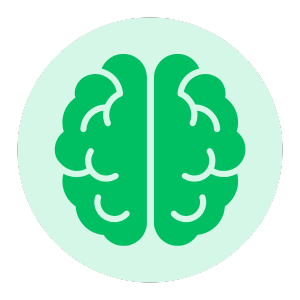OCD Assessment Tool
Evaluate patterns of obsessions and compulsions to identify potential OCD traits
This self-assessment helps identify potential symptoms associated with Obsessive-Compulsive Disorder (OCD).
Please select the category that best describes you to begin the evaluation.
Male
OCD assessment for adult males
Female
OCD assessment for adult females
Child
OCD assessment for children
Results are not a diagnosis - consult a healthcare professional for evaluation. © 2025
OCD Assessment Results
Based on your responses, here is your OCD profile
Key Characteristics
- Attention to detail
- Strong sense of responsibility
- Persistence in achieving tasks
- Ability to recognize and challenge intrusive thoughts
- Intrusive, unwanted thoughts (obsessions)
- Repetitive behaviors or mental acts (compulsions)
- Distress if routines are disrupted
- Time-consuming rituals
Management Strategies
- Practice mindfulness and relaxation
- Limit checking or reassurance-seeking
- Challenge obsessive thoughts
- Create supportive routines
- Cognitive Behavioral Therapy (CBT), especially ERP
- Medication evaluation
- OCD support groups
- Consultation with a mental health professional
Recommended Resources
- International OCD Foundation
iocdf.org | Education, resources, and support - Anxiety and Depression Association of America (ADAA)
adaa.org | OCD information and resources - National Institute of Mental Health
nimh.nih.gov | Research and information on OCD
Understanding OCD: Symptoms, Types, and Treatment Options
Comprehensive information about Obsessive-Compulsive Disorder, its various subtypes, and effective treatment approaches
Obsessive-Compulsive Disorder (OCD) is a mental health condition characterized by unwanted, intrusive thoughts (obsessions) and repetitive behaviors (compulsions). From common subtypes like contamination OCD to less familiar forms such as existential OCD and moral scrupulosity OCD, this complex disorder affects people in diverse ways. This comprehensive guide explores OCD symptoms, diagnostic criteria like the OCD ICD 10 code, and evidence-based treatment options.
Recognizing OCD Symptoms and Subtypes
OCD manifests through a cycle of obsessions (unwanted, intrusive thoughts) and compulsions (repetitive behaviors performed to alleviate anxiety). Understanding the different types of OCD is crucial for accurate diagnosis and effective treatment.
Common OCD Subtypes
OCD presents in various forms, including contamination OCD (fear of germs/contamination), harm OCD (fear of harming oneself or others), symmetry and ordering OCD (need for things to be perfectly arranged), and rumination OCD (obsessive overthinking). Other subtypes include existential OCD, false memory OCD, real event OCD, and sensorimotor OCD.
Lesser-Known OCD Presentations
Some OCD subtypes are less recognized but equally distressing. Moral scrupulosity OCD involves obsessive worry about morality and ethics, while sexual orientation OCD involves doubts and worries about one's sexual identity. Magical thinking OCD involves believing that thoughts can influence outcomes in unrealistic ways.
Diagnosis and Assessment
Proper diagnosis is essential for effective OCD treatment. Healthcare professionals use diagnostic criteria from the ICD 10 OCD classification system and assessment tools like the Yale Brown OCD scale to evaluate symptoms and their severity.
Differential Diagnosis
Distinguishing OCD from other conditions is important. OCD vs OCPD (Obsessive-Compulsive Personality Disorder) represents a key differential, as does understanding the relationship between OCD vs anxiety. Other important distinctions include ADHD vs OCD and OCD vs autism, though comorbidity is common.
Did You Know?
OCD affects approximately 2-3% of the population worldwide. The condition often begins in childhood or adolescence and tends to be chronic if left untreated. Despite common misconceptions, OCD is not about being overly neat or organized—it's a serious mental health condition that can significantly impair daily functioning. If you're concerned about OCD symptoms, consider taking our OCD assessment or exploring our anxiety test.
Treatment Approaches for OCD
Effective OCD treatment typically involves a combination of psychotherapy, medication, and sometimes newer approaches like ketamine for OCD. The gold standard psychological treatment is Exposure and Response Prevention (ERP), a type of cognitive behavioral therapy.
Therapeutic Interventions
Beyond ERP, other therapeutic approaches include Acceptance and Commitment Therapy (ACT) and occasionally what the humanistic therapy approach to OCD might involve. For those wondering about medication options, SSRIs are typically first-line treatments, while wellbutrin for OCD is sometimes used off-label, though evidence is limited.
Emerging Treatments and Adjunct Approaches
Newer treatments showing promise include NAC for OCD (N-acetylcysteine) as a supplement approach. For treatment-resistant cases, options like Deep Brain Stimulation (DBS) and Transcranial Magnetic Stimulation (TMS) may be considered.
Living with OCD: Management and Support
Managing OCD involves both professional treatment and daily coping strategies. From understanding is OCD a disability in legal contexts to connecting with others through OCD memes that humorously depict shared experiences, comprehensive management addresses multiple aspects of living with this condition.
Self-Assessment and Education
Many people begin their OCD journey with self-assessment tools like an OCD quiz or do I have OCD quiz. While these can provide initial insight, they should never replace professional evaluation. Education through OCD books and reputable online resources can also be valuable for understanding the condition.
Community and Representation
Knowing about celebrities with OCD and famous people with OCD can help reduce stigma and provide hope. OCD Awareness Week serves as an important annual event for education and advocacy, helping to spread accurate information about the disorder.
Finding Your Path to OCD Management
OCD is a complex condition with diverse presentations, from contamination OCD to rumination OCD. Effective management requires accurate diagnosis, evidence-based treatment, and comprehensive support. Whether through ERP therapy, medication, or newer approaches like ketamine for OCD, numerous paths exist toward symptom management and improved quality of life.
If you suspect you might have OCD, consider taking a professional OCD test free of definitive conclusions—these tools can provide insight but should be followed up with evaluation from a mental health professional. Remember that with proper treatment and support, people with OCD can learn to manage their symptoms effectively and lead fulfilling lives.
Explore our complete collection of assessments to better understand your mental health, or read more in our articles section for additional insights.
